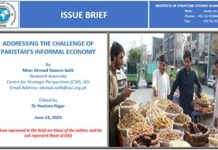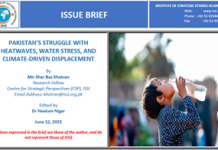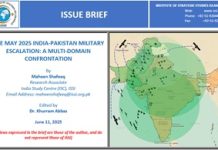Introduction
In the wake of multiple challenges in the country, the World Bank has declared a change in its development strategy. Conventionally focused on infrastructure and budget support, the World Bank now addresses two of Pakistan’s most pressing challenges: low human development and worsening climate conditions. This transition was officially announced by the World Bank’s Country Director for Pakistan, Najy Benhassine, marking a key moment in the Bank’s relations with Pakistan, where social and environmental issues have become increasingly urgent.[1]
The World Bank’s financing in Pakistan has traditionally been dominated by large infrastructure projects and budgetary support. These projects have helped improve physical infrastructure and been critical in stabilizing Pakistan’s macroeconomic framework.[2] However, social indicators remain lagging, particularly in education and health. Pakistan faces a serious human development deficit, with over 26 million children out of school and alarmingly high rates of child stunting. Meanwhile, the country is highly exposed to climate change, experiencing increasingly frequent and severe floods, such as those in 2022, which caused estimated $30 billion in damages.[3]















